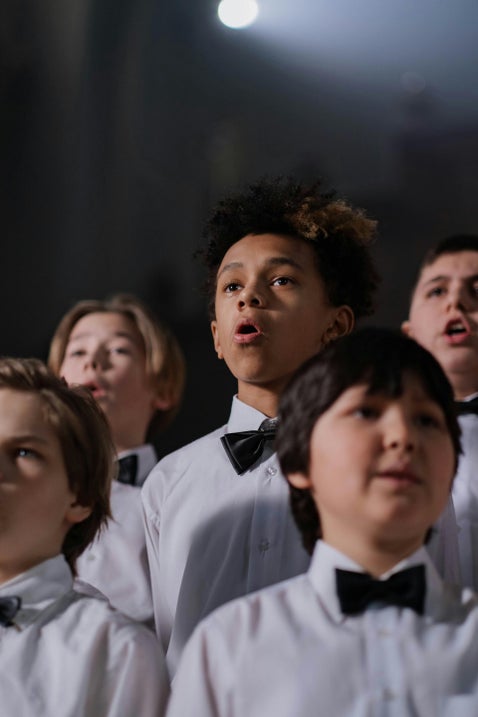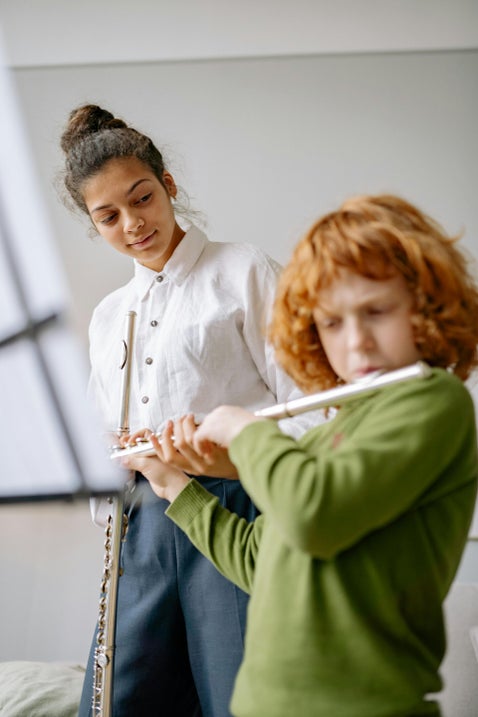The Power of Music
Discover how music embodies connection, empathy, and belonging at Mother of Nations Coaching. Learn how we use music to ensure every child is seen, heard, and valued.

The Symphony of Connection
Music plays a central role in my coaching philosophy because it embodies the very essence of connection, empathy, and belonging. When I say “Every Child is your Child,” I mean that every child deserves to be seen, heard, and valued—not just by their parents, but by the wider community. Music helps me live out that principle.

Harmonising Voices

Rhythms of Resilience
Music reminds us that every contribution matters, no matter how small, and that unity is created not by sameness but by diverse voices working together. In my coaching, music is more than an activity—it is a metaphor and a practice. It shapes an environment where every child feels safe to express themselves, respected in their uniqueness, and confident that they belong.
Musical Activities
Explore the various musical activities incorporated into Mother of Nations coaching sessions, designed to build teamwork, empathy, identity, confidence, and belonging.

Music Activities and Experiences
1. Call-and-Response Songs: Simple, interactive singing where children echo lines back, building listening, memory, and group participation.
2. Rhythm Circles (Body Percussion): Clapping and stomping to encourage self-expression while teaching cooperation and timing.
3. Musical Storytelling: Combining spoken word with sound effects or background music to help children connect emotion to narrative and boost creativity.
4. Movement and Music: Dance games or guided movement to music to release energy, develop body awareness, and bond through fun.
5. Cultural Song Exchange: Introducing songs from different cultures to promote diversity, respect, and tolerance.
6. Songwriting or Lyric Creation: Guiding children to write simple songs or chants about friendship, courage, or kindness to build confidence and give them ownership of their voice.
7. Reflection Through Music: Playing calming instrumental pieces for journaling, prayer, or quiet reflection, teaching children that music can also be a tool for peace and grounding.
The key is that each activity is not just about music itself, but about what it teaches: teamwork, empathy, identity, confidence, and belonging.
How Music Connects Us
Discover how music shapes children’s sense of identity, empathy, and connection. Learn how it fosters self-discovery and community at Mother of Nations Coaching.

Music and Community
1. Self-Expression and Identity: Music gives children / Individuals a voice before they even have the words, allowing them to express feelings and form a sense of self.
2. Emotional Regulation and Awareness: Music helps children/ individuals recognise and process their emotions, growing in emotional intelligence and self-awareness.
3. Shared Experiences and Empathy: Group music-making requires listening, harmony, and cooperation, building empathy.
4. Cultural Connection and Respect: Exposure to different musical traditions opens children / individuals to the richness of diverse cultures.
5. Building Confidence and Contribution: Performing music teaches children/ Individuals that their voice matters, fostering confidence and a sense of purpose.
6. Ritual and Community Memory: Songs often become tied to family traditions, school experiences, or community events, creating a sense of continuity and belonging.
In short: music speaks to both the heart and the collective spirit. It helps children / individuals feel seen and heard within themselves, and at the same time woven into the lives of others.
Impactful Stories
Read a powerful story of how music positively impacted a group of children during a HAF programme, unlocking their confidence and transforming their self-belief.

A Story of Transformation
One of the most powerful moments I’ve witnessed in my music therapy coaching came during my time working with children under 11 in a HAF programme. At the beginning, many of the children were shy, withdrawn, or unsure of themselves. Some would barely speak, let alone stand up in front of a group.
But everything began to change when we introduced music. We started with simple call-and-response songs and rhythm games—nothing complicated, just enough for them to feel the beat together. Soon, they were laughing, clapping, and looking at each other with smiles instead of hesitation.
As the weeks went on, music became the bridge that unlocked their confidence. Children who once stood at the back began singing louder. Others who struggled to express themselves found joy in drumming or creating their own lyrics. By the end of the programme, the transformation was undeniable: they weren’t just children playing music—they were children believing in themselves.
I remember one little girl who told me, “I didn’t know I had a loud voice, but now I do.” That simple moment reminded me why I say “Every child is your child.” Because given the right environment, every child can flourish. Music was the tool, but confidence was the fruit. And what’s most beautiful is that it wasn’t just one child who changed—every single one of them walked away taller, braver, and more sure of their own worth.